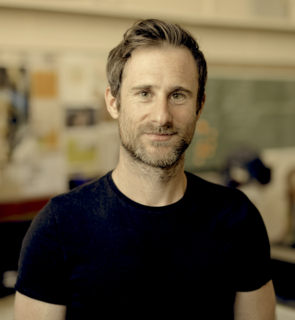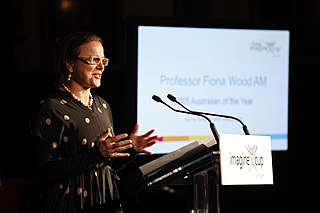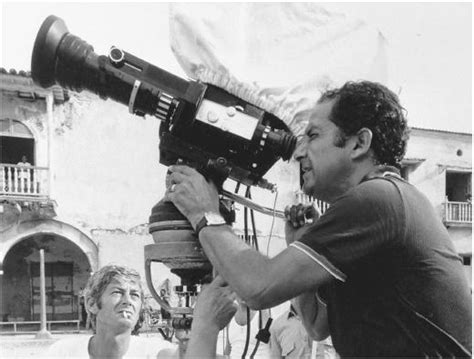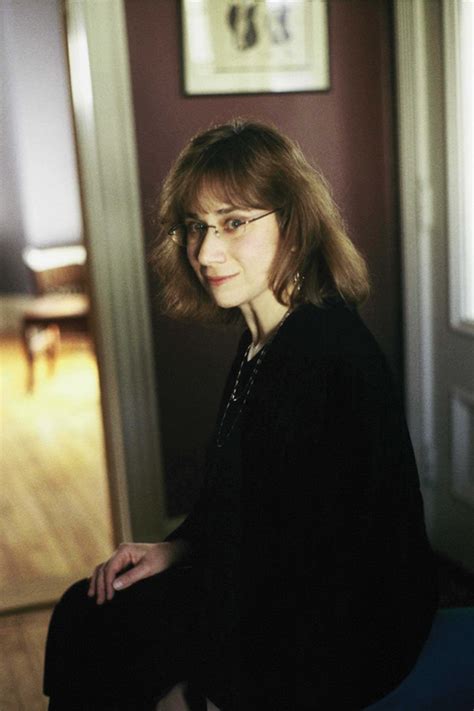A Quote by Joan Didion
Everybody who undergoes a death and finds themselves grieving is obsessed with — or maybe overly focused on — the idea that they can’t display self-pity, they have to be strong. Actually there are a lot of reasons why you are going to feel sorry for yourself, but that’s your first concern.
Related Quotes
Self-pity is the bestiality of emotions: it absolutely disgusts people. When you're feeling pity for yourself, and somebody says to you 'You think maybe it's time for the pity party to be over? You should stop feeling sorry for yourself and try to think positive,' it makes you wish you could saw their head off.
Sorry means you feel the pulse of other people's pain as well as your own, and saying it means you take a share of it. And so it binds us together, makes us trodden and sodden as one another. Sorry is a lot of things. It's a hole refilled. A debt repaid. Sorry is the wake of misdeed. It's the crippling ripple of consequence. Sorry is sadness, just as knowing is sadness. Sorry is sometimes self-pity. But Sorry, really, is not about you. It's theirs to take or leave.
It's easy to feel like you don't have any control over yourself or your life or your body as a teen - everything is changing so fast, and a lot of it feels so outside of your power. I think that's why a lot of teens form really strong attachments to fictional characters or celebrities, draw their own characters or write themselves into fan fiction.
The idea of self-effacement, the idea that you feel so powerless that the only tiny morsel of power you have is over your own ability to deny yourself food - that to me is a very profound and sad methodology and indicator of how powerless a lot of people feel in this world. That they will turn that onto themselves until they are physically smaller. I think it's affected my worldview a lot - just being sensitive and empathetic towards the ways people want to be small. I don't wish smallness for anyone.
Being able to influence the outcome, being able to do something about it, to be able to stop the bleeding. You're not being useful if you're just standing there going "Oh, that's awful!" You're only useful if you actually do something about it and I think that goes for everything. If you actually do something about what's in front of you, then you are actually contributing and you haven't got time to be self-centred or sorry for yourself. You should be doing something about the person you really should feel sorry for.
Maybe you’ll marry, maybe you won’t, maybe you’ll have children, maybe you won’t, maybe you’ll divorce at 40, maybe you’ll dance the funky chicken on your 75th wedding anniversary…what ever you do, don’t congratulate yourself too much or berate yourself either – your choices are half chance, so are everybody else’s.
That's the dream scenario: when people approach these stressful situations not focused on that concrete outcome but just focused on being there and being themselves and enjoying connecting with people. You're not going to be present all the time, but if you can figure out how to connect with yourself and bring that self forth in those moments, you will probably be feeling a lot better over time, and it's likely that even though you're not focused on the outcome, the outcomes will be better.
First of all, directing is an idea that you have of a total flow of images that are going on, which are incidentally actors, words, and objects in space. It's an idea you have of yourself, like the idea you have of your own personality which finds its best representation in the world in terms of specific flows of imaginary images. That's what directing is.
You can be excellent in every way. You can be first class. There is no need for you to be a scrub. Respect yourself. Do not feel sorry for yourself. Do not dwell on unkind things others may say about you. Polish and refine whatever talents the Lord has given you. Go forward in life with a twinkle in your eye and a smile on your face, but with great and strong purpose in your heart. Love life and look for its opportunities.
I think seriousness is a mask of self-importance and self-importance in turn is a mask for self-pity. So if you're really going to pursue a spiritual way of living in the world, you must be lighthearted and carefree, have humor, be able to tolerate ambiguity and embrace uncertainty, and be forgiving of yourself and everybody else.
The human instinct for self-preservation is strong. I know, because mine pulls at me, too, like the needle on a compass. And everybody - I've been reading some philosophy - everybody seems to agree that the instinct and responsibility of all humans is to take care of themselves first. You have the right to self-defense. You have the right to survive, if you can.



































